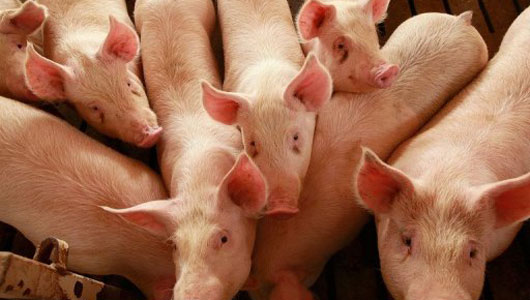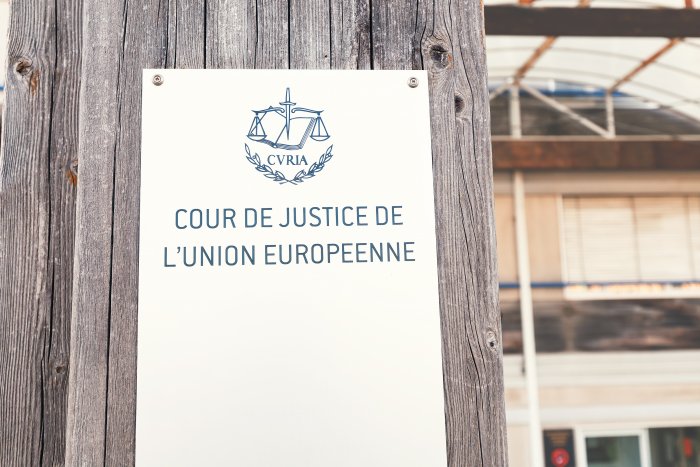VAT reduction: From red meat to white market

From the Budapest Business Journal print edition: Agriculture Minister Sándor Fazekas announced on November 20 that the government will lower the VAT on live pigs and half carcasses from 27% to 5% as of January 1, 2014. According to the minister, the aim is a partial whitening of the meat market. To any layman unfamiliar with the meat industry, this would probably be a hard piece of news to interpret, so BBJ asked Tamás Éder, corporate relations director at Sándor Csányi’s Bonafarm Holding (which includes meat manufacturers Herz and Pick), to comment on the news.
BBJ: Is pork going to cost less in retail stores as a result of this new measure?
Éder: Not really. The 22% VAT decrease has no effect on the final product, namely meat and processed meat, as the VAT of those products will stay at the very high 27% level.
So the loss of revenue suffered by the central budget will make the meat industry richer?
This is not really likely, either. The tax cut would only have a broader impact if consumption habits went through a change. If, for example, meat consumers living in the countryside – people who also possess freezers – purchased many more half pigs from this time on. This target group of customers, however, is rather narrow, so we are not expecting any serious effect on the state budget.
Then what is the purpose?
As Minister Fazekas says, the purpose of the VAT reduction is the whitening of the meat industry, or at least of the segment which produces unprocessed or half-processed goods. In the case of fast-moving, unbranded consumer goods like unprocessed meat, it is very hard for the authorities to follow the route of the goods. In addition, saving 27% on VAT is a significant gain indeed. These two factors expressly attract those greedy wranglers who wish cheat on VAT.
Could you be a bit more specific?
There are two forms of VAT abuse commonly used in the unprocessed food industry. One of them requires a chain of similar-profile companies; among these companies a plausible amount of goods is traded, and every company that furthers these goods on paper claims VAT repayment from the national tax authorities. The ultimate company which markets the goods will not pay any VAT to the national budget; and when this company accumulates two much tax debt it announces bankruptcy or vanishes in some other way (for example, the original owners sell the firm to a homeless person).
In the case of these chains, besides the fictitious movement of goods, most often a real movement of goods is going on as well. The goods, however, are not treated in the way that honest companies regard their stock. For VAT abusers, goods serve only as pretext for their transactions, and the sales are in fact almost irrelevant. The participants of the VAT abuse chain have already struck a good deal with their false VAT repayment claims; the profit from sold goods comes only as additional benefit. And this is exactly how they treat it: as the profit from sales is not really important, they market the meat at dumping prices. This way, they cause damage to both the national budget and to all those honest actors in the meat trade who cannot compete with those depressed prices.
And how about the other type of abuse?
Minor actors, i.e. those who sell the half-processed meat to end-users, commit the other type as a rule. These minor actors buy up the pork from small slaughterhouses without a bill and sell it on to the customers the same way. Their stores open early in the morning and when tax authorities arrive after 10 AM, all the meat that can be seen in the store is documented as legally purchased produce.
Those who commit this type of abuse run the risk of being caught by the authorities. But the gain they make on sparing the 27% VAT is so big that it is worth that risk. From an economical point of view, this means that a legal company will be completely unable to sell their meat profitably.
But if I understand it well, this is not a problem specific to pork alone.
It is not even a problem specific solely to various types of meat, but also several other agricultural and food products, from vegetables to fresh pastry.
Why is the current government proposal concerned exclusively with pork then?
Recently, several notable meat processors have come close to bankruptcy in Hungary. It was crucially important for municipal governments to save workplaces in those cities and towns, so the meat processing companies in question have essentially been nationalized. This is what happened in Pápa, Gyula, and Kaposvár, the latter town being the headquarters of the well-known Kométa brand. Now the government is faced with the problem that it is impossible to run these companies profitably in the existing conditions.
This seems to be a clear enough solution. If it is in someone’s interest to make profit by abusing VAT repayment claims, they will switch to processed pork products.
They may in fact switch to anything from poultry through beef to vegetables. The food processing industry has been battling for ten years to get the VAT on food lowered to 10%; at that level, according to a survey conducted by Ernst & Young, the risk of abuse exceeds the extent of the achievable profit. All that happened, however, was that the slogan of reduction of VAT on food products has been fixed on the banner of parliamentary opposition, whichever party may have been in that position throughout the past decade.
In 2008, it was [Fidesz MPs] that submitted such a proposal to the budgetary committee of the Hungarian Parliament, and it was the governing Socialists that killed the proposal. In 2011, it happened the other way round. The actors on the two sides were exactly the same politicians. Minister Fazekas suggested that the present measure may be the first step of a process to be applied to other foodstuffs as well. We are all looking forward to the next episode.
SUPPORT THE BUDAPEST BUSINESS JOURNAL
Producing journalism that is worthy of the name is a costly business. For 27 years, the publishers, editors and reporters of the Budapest Business Journal have striven to bring you business news that works, information that you can trust, that is factual, accurate and presented without fear or favor.
Newspaper organizations across the globe have struggled to find a business model that allows them to continue to excel, without compromising their ability to perform. Most recently, some have experimented with the idea of involving their most important stakeholders, their readers.
We would like to offer that same opportunity to our readers. We would like to invite you to help us deliver the quality business journalism you require. Hit our Support the BBJ button and you can choose the how much and how often you send us your contributions.








